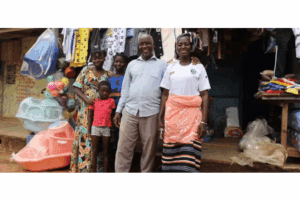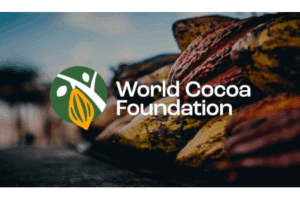For the first time through their local government, cocoa farmers in Ghana have now been given the possibility to register the ownership of timber trees on their farms.
The decision comes around about a year since many organisations and key players within the chocolate, cocoa and agricultural sectors – such as Sustainable Food Lab and World Cocoa Foundation (WCF) – worked closely with the Ghanian government on how to fight climate change.
The WCF’s environment director, Ethan Budiansky, has stated that it’s incredibly important to conserve forests and to diversify the income sources available to cocoa farms in Ghana, due to the fact they can earn additional revenues by selling on their trees to timber companies.
Budiansky added that the extra income can be used by farmer to rehabilitate cocoa trees which have aged down the line.
The environment director also pointed out that cocoa farmers frequently suffered from illegal logging, as timber trees in Ghana were previously controlled by the state.
“There was never a system in place to protect Ghanaian farmers from forced deforestation,” Budiansky said. “Now they have the opportunity to replant the deforested areas as well.”
In addition, Budiansky also said that a number of West African countries – including Ghana and Cote d’Ivoire – conjure up 70% of the world’s cocoa beans, however cocoa across the region is regularly “monocropped with little to no shade.”
“Incorporating more shades on the cocoa farms will provide environmental benefits but also productivity,” he added.
“With climate change now threatening cocoa farms, forests and shade trees can positively affect local climatic conditions by promoting cooler temperatures, keeping moisture in the air and the soil, and helping maintain soil fertility.
“Trees also help improve biodiversity by creating a friendly environment for birds and cocoa-pollinating insects. Different tree species also serve as an obstacle for pests that often spread diseases between cocoa trees.”









